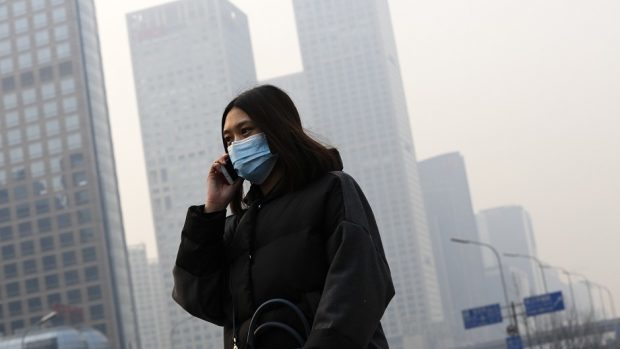It is now nearly three years since I moved, with my family, to Beijing.
Having grown up in – and represented – the Highlands, the most sparsely populated part of the UK, the opportunity to move to one of the world’s largest cities presented some challenges.

One of these is environmental, and the question I am most often asked is about the issue of air pollution.
In fact, the reality is quite different to the reputation. Increasingly often, Beijing has clear blue skies.
But there are also days, especially in the winter months, when the smog can be severe.
Air purifiers at school, at home, and in offices, and masks while travelling, mean we learned to manage.
It is an issue I have been able to get to grips with first-hand in the role I left the UK to take up, as vice president of the Asian Infrastructure Investment Bank (AIIB).
AIIB is the new multilateral development bank which the UK committed to join in March 2015 – one of the last important decisions made by the coalition government of which I was part.
Appropriately, investing in green and sustainable infrastructure is a central part of the mission given to us by the 57 countries that founded the bank.
Developing the right kind of infrastructure in Asia – especially in energy generation and urban development – will be critical in determining whether the world meets the goals set in the Paris Agreement. We are putting our ‘lean, clean, and green’ values into effect here in Beijing – and in many parts of Asia.
Air pollution in Beijing has many sources, including the burning of coal for cooking and heating in the surrounding countryside, factory production and the rapid growth in car ownership in a city of 22 million people. As well as producing high-levels of carbon dioxide that contributes to climate change, inefficient fuel combustion produces high concentrations of particles that are dangerous to human health.
In fact, the pollution in Beijing has come down significantly since the city adopted targets in 2013 to clean up the air, and the change is noticeable in the nearly three years that I have lived here.
On a recent visit to the Beijing Municipal Environmental Protection Bureau, the city’s environmental experts explained the measures they have taken to tackle pollution, including switching from coal to gas and renewables, phasing out old motor vehicles, incentivizing the use of electric vehicles and closing factories.
At the end of 2017 AIIB approved a US$250 million loan to connect 216,750 households around Beijing to the natural gas distribution network. Replacing coal furnaces in these villages is expected to reduce annual carbon dioxide emissions by 595,700 tons and particulate matter by 3,700 tons annually. This will help to make further progress and help the Bank to learn lessons that can shared with other Asian cities, many of which have air pollution problems more severe than Beijing.
Carbon dioxide emissions and air pollution go hand in hand as they are both consequences of burning fossil fuels. Carbon dioxide emissions from Asia have risen rapidly, from 25% of the global total in the 1990s to 40% in 2012. At the same time, over one billion people have been lifted out of extreme poverty in East and South Asia since 1990, and the continent accounts for more than half of global manufacturing output. Yet a further onebillion people across Asia do not yet have access to electricity to run their homes and businesses.
It is critically important for Asia – and for the rest of the world – that the continent’s future growth is environmentally sustainable. That’s why AIIB is investing in energy projects, including solar and hydropower projects and projects that improve the energy efficient of existing infrastructure, to help our members achieve their targets. This includes an investment in 11 photovoltaic solar power plants in the Benban Solar Park near Aswan in Egypt, part of the second largest solar project in the world today.
In September I visited Savar, a rural area outside Dhaka in Bangladesh, and met families who have electricity in their home for the first time because of an AIIB project. The bank has made a US$165 million loan to upgrade and expand the electricity distribution system in the area, and eventually 2.5 million households will be connected to the power grid.
So, while the pollution in Beijing is certainly a challenge, moving here has been a rewarding experience for my family, allowing us to witness the speed and scale of change in one of the world’s most dynamic regions. The UK has much to offer in terms of expertise and technology and is playing an active role in the bank and in the region. Asia’s success in achieving green and sustainable development matters to us all.
I hope to see more blue skies over Beijing in the coming months.
Sir Danny Alexander was a Highlands MP for 10 years, served as Chief Secretary to the Treasury in the UK coalition government from 2010 to 2015 and is now vice president of the Asian Infrastructure Investment Bank
